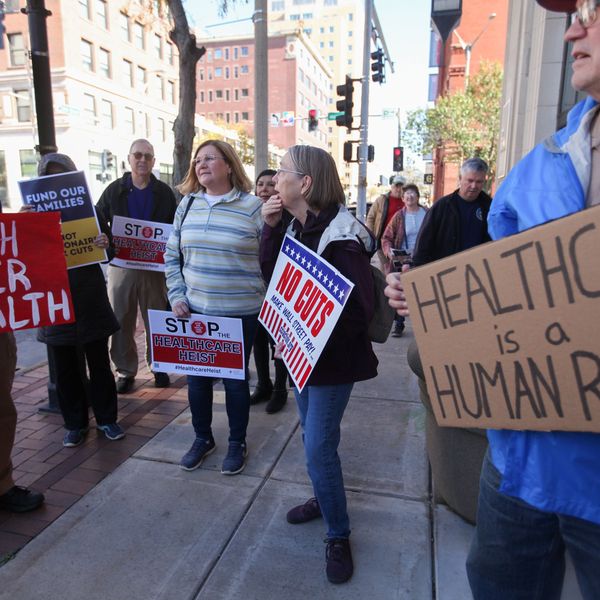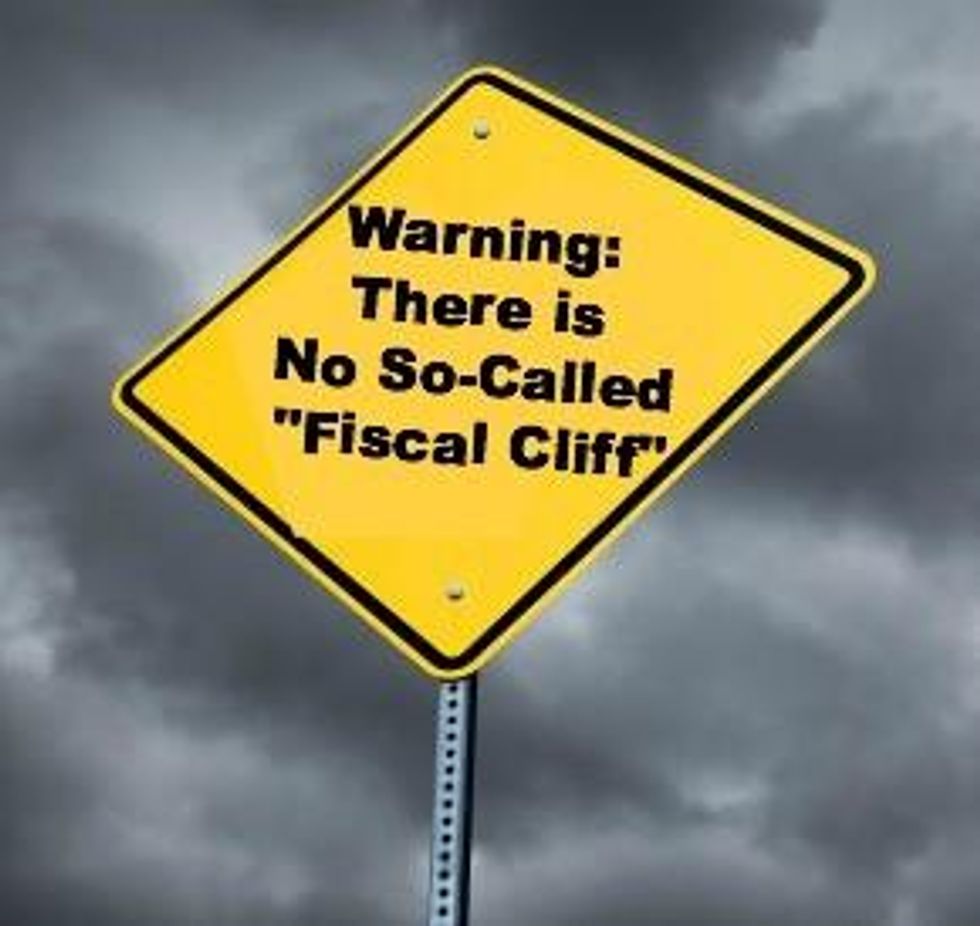Many of the nation's most important news outlets openly embrace the agenda of the rich and powerful that colors its coverage of major economic issues. This is perhaps nowhere better demonstrated than during the current budget standoff between President Obama and Congress, which the media routinely describes as the "fiscal cliff". This terminology seriously misrepresents the nature of the budget dispute, as everyone in the debate has acknowledged. There is no "cliff" currently facing the budget or the economy.
If no deal is reached this year, then on 1 January, daily tax withholdings will rise by an average of about $4 per person. Any money actually deducted from pay checks will be refunded if a deal is subsequently reached that returns tax rates to 2012 levels. Government spending probably won't change at the start of the new year, since President Obama has considerable discretion over the flow of spending. No one can think that this modest increase in tax withholdings would plunge the economy into a recession, but the Wall Street types seeking to dismantle social security and Medicare have used their enormous wealth and allies in the media to generate this kind of fear-mongering across the country.
One way in which they have pushed their agenda has been in misrepresenting projections from the Congressional Budget Office (CBO). The CBO's projections show that if higher tax rates and lower spending are left in place for the whole year, then it will substantially slow growth and push the economy into a recession. However, these projections explicitly assume that we go a whole year without reaching a deal. They say nothing about what happens if the government cuts a deal by the second or third week in January. Even a Washington Post editor should be sharp enough to understand this distinction; nonetheless, many stories have implied that the recession projections apply to missing the 1 January deadline.
Wall Street types have also pushed this idea that the markets are demanding for programs like social security and Medicare be cut. This sort of assertion, which is treated as a fundamental truth by the Washington insider crowd, has the wonderful feature of escaping contradiction. Of course, none of us knows exactly what will trouble the financial markets or by how much that trouble would hurt the economy. (In fact, even a sustained drop in the stock market has a limited effect on the economy, and short term fluctuations have almost no impact.) This means that when Wall Street, or their designated mouthpieces, make authoritative-sounding claims that the markets will be upset if we don't cut social security or Medicare as part of a budget deal, there is no direct way to refute them. After all, it is possible that they might be right.
If economic reporters did their job, though, they would be looking for evidence to support these assertions about financial markets. They could start by looking at the track records of those issuing the warnings. If they examined the track records of people at organizations like the Campaign to Fix the Debt, and other deficit hawks, they would reveal to their audiences that these "experts" have the distinction of being almost 100% wrong on just about all their economic predictions over the last five years.
This crew has been predicting that large budget deficits would cause interest rates to skyrocket ever since President Obama's first round of stimulus, almost four years ago. Many also predicted that inflation would explode. Yet, none of them warned us about the housing bubble: they were too busy running around the country yelling about the budget deficits even when the deficits were small enough that the debt to GDP ratio was actually declining.
In short, major national news outlets have adopted the agenda of the Wall Street elite that displays zero evidence of any understanding of what drives the economy, wholesale. Their assertions that the markets will panic without a budget deal that cuts social security and Medicare have no apparent foundation in reality. It is just a threat that they have concocted to advance their agenda. Now, that would make for a very good news story.




